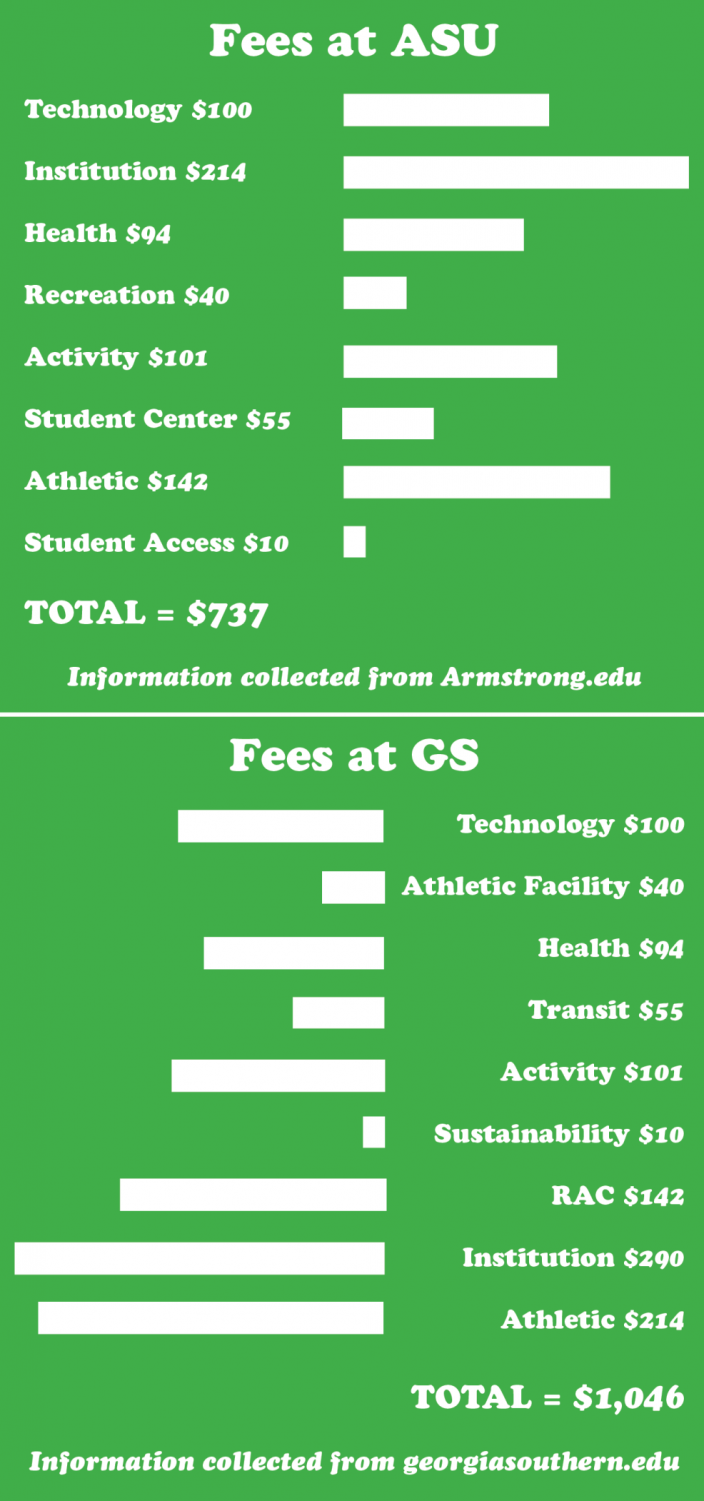Student Government presidents address concerns about fees in consolidation process
February 14, 2017
The Georgia Board of Regents announced the recommendation for consolidation between Georgia Southern (GS) and Armstrong State University (ASU) on Jan. 11, 2017.
According to a press release, the consolidation process is expected to take 18 months with the end result being a consolidated institution with the Georgia Southern name.
At the moment, a lot of questions about fees have been left unanswered because the administrations from both schools simply don’t know. The first consolidation committee meeting took place on Feb. 1 at the University System of Georgia offices in Atlanta.
ASU Administration
Chris Corrigan, vice-president of business and finance at ASU, feels the meeting will be a step towards being able to answer questions. Although not a lot of work has been done, Corrigan expects that to change after the meeting.
“I expect after [the meeting], we would form a number of working groups, maybe as many as 70 or 80. One of them would certainly be addressing fees and tuition,” Corrigan said.
Currently, according to the Armstrong State University website, undergraduate students are paying $737. On the other hand, according to the Georgia Southern University website, students are paying $1,046, which is $309 more than ASU students.
ASU Student Government
Dustin Stewart, Student Government Association (SGA) president at ASU, doesn’t expect fees to change much during the transition, but only time will tell. Since the process began, the goal has been to raise student concerns from both institutions.
Stewart feels the concern many students and people in the community have is whether the history and all the progress made by ASU would be preserved in one way or another.
GS Student Government
Dylan John, SGA president at GS, has had multiple conversations regarding the merger and he expects the dialogue to continue until their term in office ends.
“As far as I’m concerned, as soon as that announcement was made, although on book we are not one consolidated institution, throughout the process we need to be consolidated partners,” John said.
John asks students to be patient throughout the process and to talk to SGA or the university administration regarding concerns they might have.
Both SGA presidents want their student concerns being heard with the first consolidation meeting expected to be the first step in doing so. At the same time, Corrigan feels the same way about student issues.
Corrigan wants students to be involved in the process as much as possible to make sure the end result is a better institution for all the students.
The first order of business for the committee is to draft a mission statement and create a plan of action for athletics, according to a press release released on Feb. 1.









